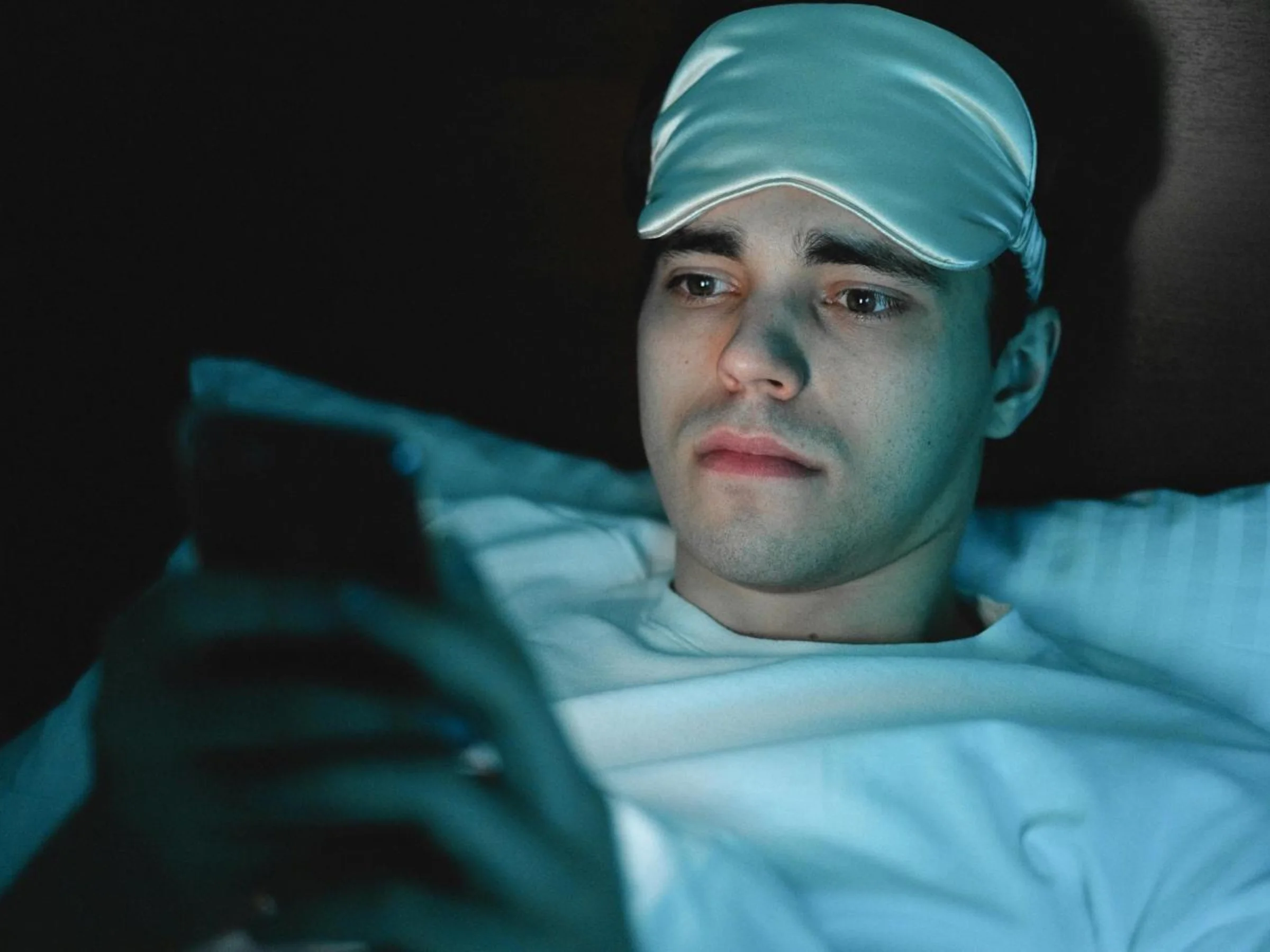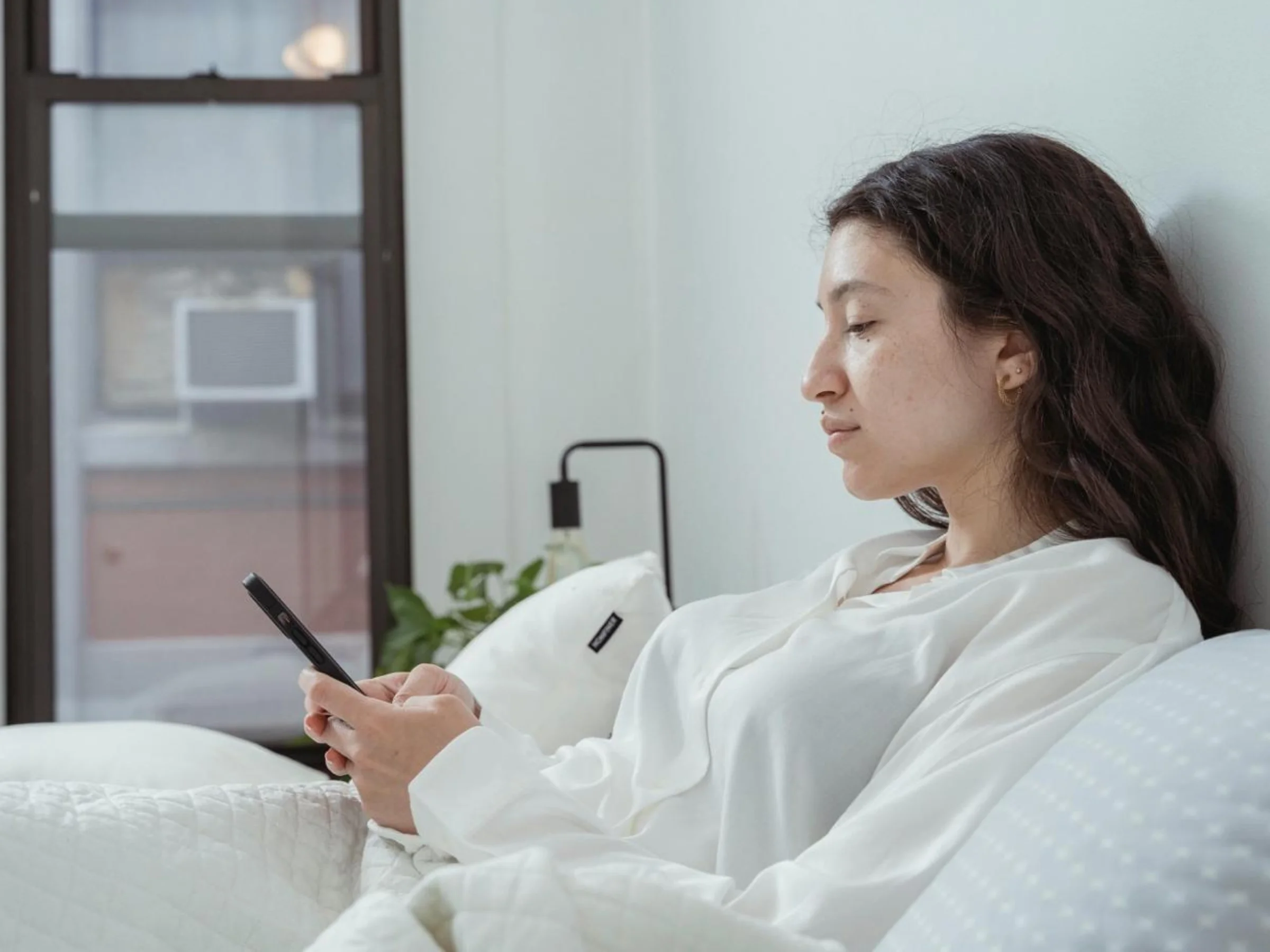Scroll less, sleep more. Learn how nighttime scrolling affects your rest—and simple ways to break the habit for better sleep starting tonight.

It’s not just the kids who need a screen ban an hour before bed; we’re all guilty of tech temptations when tucked in. For some it can be emails actioned too late, for others, the screen is disguised for Netflix or YouTube via a laptop or tablet. However, for the vast majority, the mobile phone continues to drain the hours away from a peaceful, restful sleep.
A study has proven that those spending more time looking at a screen in bed are more likely to report insomnia and sleep loss. The research, which surveyed more than 45,000 students aged between 18-28 found that each additional hour of screen time was linked to a 63% increase in insomnia risk and 24 minutes less sleep.

Dangers of Blue Light – the science
White sunlight, which we have become accustomed to over millions of years, is composed of approximately 25% to 30% blue light. This natural blue light reduces as a percentage of sunlight through the afternoon, guiding our bodies into night mode. Whereas computer monitors and other electronic screens emit approximately 35% blue light and continue at these high levels well into the evening.
Research has shown that high levels of blue light exposure can have various implications for health and well-being. Long exposure to high-energy particles at the blue end of the visible light spectrum can damage receptors in the eye. While the use of artificial light at night can trigger a variety of different sleep problems (as well as physical, emotional and mental health disorders).
Sleep Disruption
Our internal clock, known as our circadian system, is programmed to respond to natural light. The blue-rich light of the morning sun blocks the release of the sleep hormone melatonin, waking us up. Whereas the red tones of the setting sun, or the absence of blue light, reverse the process and get the body ready for sleep. However, screens and their blue light at night fools the circadian system into thinking it’s day. Exposure in the hours before sleep can hugely affect your body’s ability to rest and trigger sleep disorders. The body’s natural circadian system also influences bodily systems, such as digestion, blood pressure, temperature regulation, and metabolism, all of which can lead to broader health issues.
For sleep, blue light also reduces the amount of time you spend in ‘slow-wave’ and ‘rapid-eye movement’ (REM) sleep, two stages of the sleep cycle that are vital for cognitive functioning.
Most of us are aware that the blue light emitted from our screens impacts our sleepiness, yet the temptation to sit and scroll increases, often due to tailor-made, engaging content specially selected to mirror our individual preferences. So, how do we beat the screen addiction and bring back a healthy sleep routine?

Tips to reduce screen time before bed:
- Track Your Screen Time: Use your phone’s screen time tracking feature to see how much time you’re spending on your devices. This can help you appreciate the time lost on your phone.
- Set Screen Time Limits: Use your device’s built-in features to set limits on screen time.
- Disable App Notifications: Turn off notifications for apps that you might be tempted to check before bed.
- Avoid Stressful Content: Refrain from watching stressful or exciting content before bed.
- Use Blue Light Filters: Enable blue light filters on your devices and consider wearing blue light-blocking glasses.
- Screen-Free Zone: Keep all devices outside the bedroom, especially during the evening. If you use the phone as an alarm, it’s time to buy an alarm clock! (Ideally, one with soft lighting, not bright!)
- Set a Digital Curfew: Stop using screens at least an hour before your desired bedtime to allow your body to wind down.
- Set a bedtime: it may sound obvious, but having an actual time for lights out and heading to bed really helps, and then sticking to this time helps cement the body clock.
- Bedtime Routine: Wind-down time is crucial for relaxing and preparing for sleep. Try reading a book, taking a warm bath, or listening to calming music. Dimming the lights also helps support the production of melatonin and reduce cortisol.
Book in your free 30-minute sleep consultation to discuss your sleep issues and learn how Claudine can get your sleep back on track.



